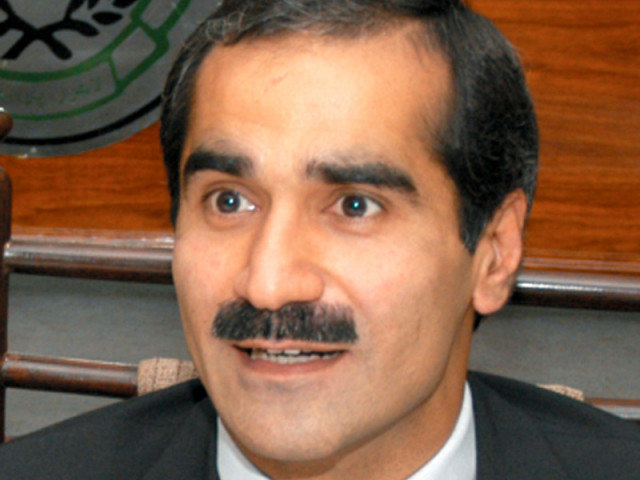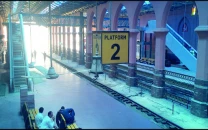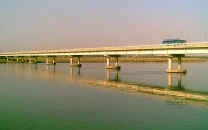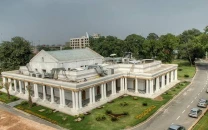Concluding session: Broader perspective on connectivity is key, says Saad
Minister urges regional integration for economic growth at international conference

According to record two cases were registered on May 11, 2004 against Saad Rafique and others for staging a demonstration on the eve of Shahbaz Sharif’s expected visit to Pakistan. PHOTO: FILE
Federal Minister for Railways Khawaja Saad Rafique shared his views during the concluding session of the three-day international conference on inter-regional connectivity: ‘South Asia and Central Asia’.
Delegates from 18 countries attended the closing session of conference which was chaired by GCU Vice Chancellor Prof Dr Hassan Amir Shah.
“A broader perspective on connectivity is key. This kind of connectivity should not be considered sector by sector but rather as a part of integrated networks of industrial zones, trade, rail, roads, energy, culture, people and technology,” said the minister .

Rafique believed that the up-gradation of Pakistan Railways existing network and its connectivity to the railways of the region would usher in a new era of development and prosperity for Pakistan.
“With a trans-border movement of trains within the next 10 to 15 years and capitalising on the Central Asia Regional Economic Cooperation which is a partnership of 10 countries working together to promote development cooperation leading accelerated growth besides envisioning implementation of China Pakistan Economic Corridor,” he said.
Talking about the Pakistan Railways development plans in context of inter-regional connectivity, the minister said they had prepared a master plan to upgrade railways’ three main arteries, Main Line One (ML-1) from Karachi to Torkham, ML-2 from Kotri to Attock City, and ML-3 Rori-Quetta–Taftan Section with its extension to Dera Ismail Khan via Western corridor through Bostan.
The framework agreement was being signed with the Chinese government for providing funding of $5.7 billion for up-gradation of Lahore-Karachi segment of ML-1, while an understanding had been reached with the Asian Development Bank for providing financial support amounting $2.5 billion for upgradation of Peshawar-Lahore section. With this up gradation, the speed of passenger train would be upgraded to 160Kph which is currently at 105Kph, he claimed.
Rafique said the feasibility studies of ML-2 from Hyderabad-Attack, ML-3 and Quetta-Gwadar, Abbottabad and Peshawar-Jalalabad railings had been awarded to renowned consultants.
Published in The Express Tribune, November 12th, 2016.



















COMMENTS
Comments are moderated and generally will be posted if they are on-topic and not abusive.
For more information, please see our Comments FAQ